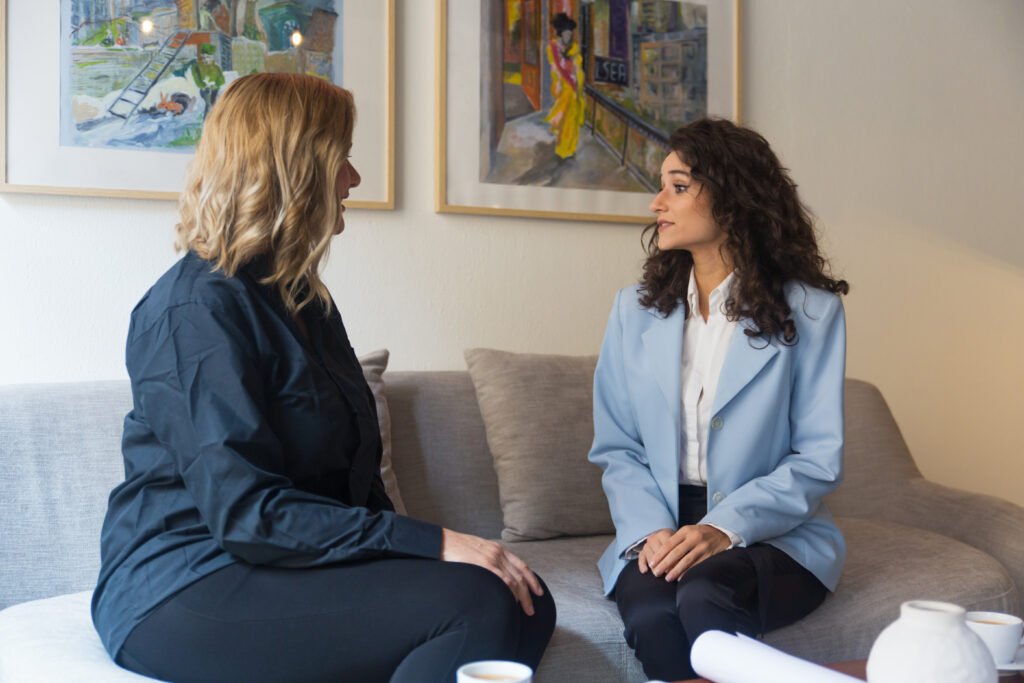Have you ever looked at your packed schedule and thought, “I don’t even have time to feel lonely”?
In today’s world, being busy feels like the new normal. We rush from one meeting to another, scroll through notifications, catch up with people online, and tell ourselves we’re fine. But deep down, many of us are running from something quieter — emotional loneliness.
It’s easy to assume that loneliness means being alone. But loneliness isn’t about how many people you have around you; it’s about how connected you feel — to others and to yourself. And ironically, the busier life gets, the easier it becomes to overlook the hidden signs of loneliness that quietly creep in beneath all the noise.
Here are five ways loneliness might be hiding behind your busy lifestyle — and how you can gently start to notice it.
1. You Keep Filling Every Moment So You Don’t Have to Feel
Ever noticed how silence can feel uncomfortable? When you finally get a free evening, instead of relaxing, you open your laptop, scroll through social media, or binge-watch something “just to unwind.”
That’s not laziness — that’s avoidance. Constant busyness can be a way of running from stillness, because stillness forces us to feel.
If you find yourself unable to sit quietly, or feeling uneasy when there’s “nothing to do,” it might be one of those hidden signs of loneliness. Your brain is craving distraction because your heart is craving connection.
Try this: Give yourself permission to have quiet time — even ten minutes without screens or noise. Let your thoughts wander. You might be surprised by what your soul is trying to tell you.
2. You Have Lots of Conversations, But Few That Feel Real
You might talk to people all day — coworkers, friends, clients, even online followers — but when was the last time you had a conversation that really nourished you?
We live in an age of constant communication but very little connection. It’s possible to be surrounded by people and still feel emotionally isolated. That’s emotional loneliness — when your interactions lack the warmth and depth your heart truly needs.
Maybe you notice that you feel drained after socializing, even with people you like. That’s often a quiet signal that your connections are more surface-level than soul-deep.
Try this: Instead of asking “How are you?” — ask “How are you really?” You’ll be amazed how quickly a genuine moment of connection can lift the fog of loneliness.
3. You Measure Your Worth by How Much You Do
Let’s be honest — most of us are guilty of this. We chase goals, achievements, and recognition, thinking that once we “get there,” we’ll finally feel whole. But no matter how many boxes we tick, the emptiness doesn’t go away.
That’s because success can’t replace emotional connection. When we’re struggling with emotional loneliness, we often use productivity as a way to feel in control — or even to distract ourselves from the ache of disconnection.
Over time, that constant striving can lead to burnout and emotional fatigue. The truth is: we don’t need to do more; we need to feel more.
Ask yourself: Am I working hard because it fulfills me — or because I’m afraid of what I’ll feel if I stop?
4. You’re Always the One Helping Others, But Never Asking for Help
Do you find comfort in being “the strong one”? The one who listens, supports, and shows up for everyone else — but rarely opens up yourself?
It’s beautiful to care deeply for others, but sometimes that role can become a shield. You stay busy helping everyone else so you don’t have to confront your own feelings. It feels safer to give than to receive.
But emotional connection is a two-way street. When you don’t allow yourself to be vulnerable, you block the intimacy that truly heals emotional loneliness.
Practice mindfulness: Let someone in — even a little. Share something honest about your day or your feelings. You don’t have to carry everything alone.
5. You Avoid Being Alone, Mistaking It for Loneliness
Here’s the paradox — loneliness isn’t always about being alone, and solitude isn’t always lonely.
In fact, learning to be comfortably alone is one of the healthiest ways to reconnect with yourself. But when life gets overwhelmingly busy, we forget how to sit with our own company. We treat solitude like an enemy, when it’s actually a mirror — one that helps us hear what we’ve been too busy to notice.
If silence feels heavy, or if you fill every quiet moment with noise, that’s another hidden sign of loneliness. It’s your heart saying, “I miss you.”
Try this: Spend time alone doing something that centers you — journaling, walking in nature, or meditating. You’ll discover that solitude can be deeply healing, not scary.
Reconnecting with Yourself and Others
The truth is, emotional loneliness doesn’t always look like sadness or isolation. Sometimes, it looks like endless activity. It’s hiding in your to-do list, in your notifications, in your “I’m fine.”
The first step toward healing is awareness. Notice when your busyness feels like escape. Notice when your conversations lack depth. Notice when your achievements feel hollow. These small observations are acts of self-love — they help you come back to yourself.
When you start to slow down, you make space for real connection: with others, yes, but also with your own heart.
Because what most of us are searching for isn’t more time, money, or success. It’s belonging. It’s warmth. It’s peace.
So the next time you catch yourself rushing through life, pause. Take a deep breath. Ask not “What do I have to do next?” but “What do I need to feel right now?”
That’s where healing begins.


























7 Responses
Well said.
Okay, UG777casino is pretty solid. The games are legit and they payout pretty quick, which is a big plus in my book. Good selection too. Give it a shot! ug777casino rocks!
Alright, folks! Been checkin’ out nohuvip. Seems like a decent spot to try your luck. Give it a shot, see if you can hit the jackpot! Check it out here: nohuvip
Downloaded x888apk and the games load fast. Easy to navigate, too. If you are looking for a quick fix of mobile gaming, this could be it. Worth a download. Find it here: x888apk
Okplayph represent! Pinoy pride! I’ve been messing around on Okplayph for a while now and it’s legit. Sulit! Go check it out kabayan: okplayph!
Taizowin, never heard of it before. Anyone got an invite code they wanna throw my way? Always down to check out a new platform. taizowin
Alright, 55666 bong88 is the real deal. I’ve had some decent wins on this site. The interface is clean and easy to navigate, which is a major plus. Give it a shot! 55666 bong88